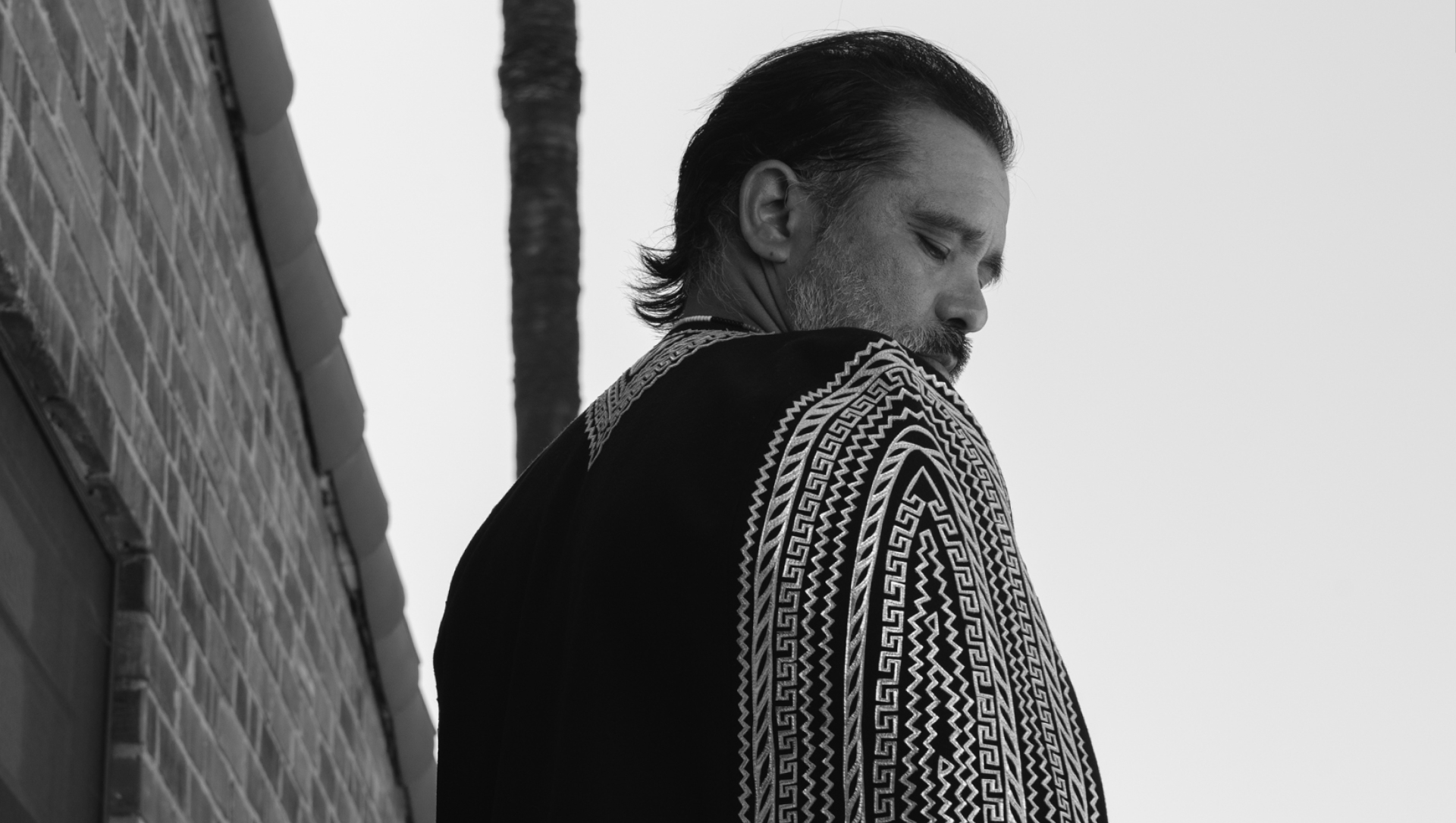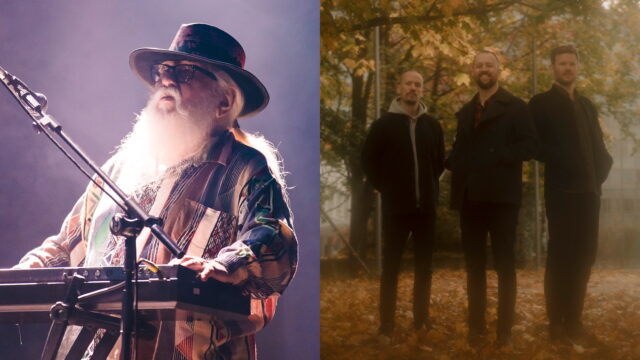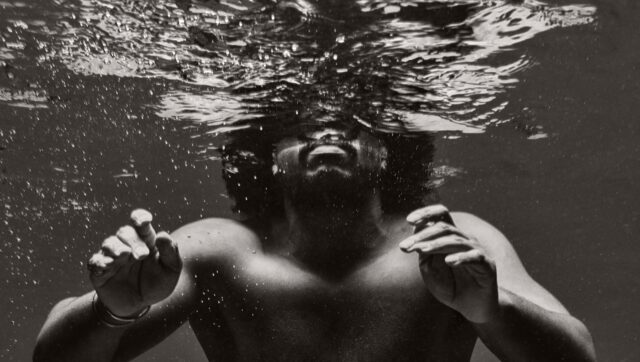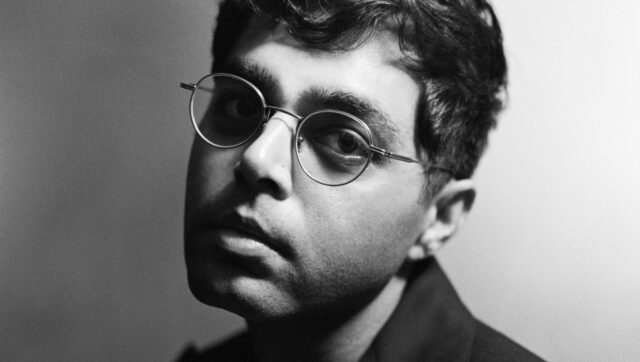Finding Your Sound: Cochemea
The Sharon Jones and the Dap-Kings member talks “dream scores,” electric saxophone and channeling his Yaqui heritage.
by Brad Farberman
While doing research for his new album, Vol III: Ancestros Futuros, saxophonist Cochemea Gastelum came across the story of a Yaqui midwife who would bury infants’ navels in the earth. This was so those born in the future would take back the land — the Yaqui are an indigenous people of Mexico. The story resonated with Cochemea, who grew up in San Diego but has Yaqui roots.
“When I found that story, it just struck a chord with me as to what I was thinking about,” says Cochemea, “in thinking about my ancestors and what they had to do for me to be here, and then what we have to do for our future ancestors to be here. And just the process of imagining how we propagate survival and our responsibilities to our future ancestors. And also imagining other worlds that are possible.”
A former member of Sharon Jones and the Dap-Kings who’s also worked with Amy Winehouse and Kevin Morby, Cochemea started investigating his background in 2019, with All My Relations. Producer (and Daptone Records co-founder) Gabe Roth had asked a simple question — “Why don’t we do a drum record?” — and, with percussionist Sabu Martinez’s 1973 album Afro Temple as inspiration, the project came together. A second volume, Baca Sewa, dropped in 2021, and all three albums share the same instrumentation: multiple percussionists and sax (plus some bass, keys and vocals). Ancestros Futuros is a spiritual, psychedelic expedition with Cochemea’s electric instrument levitating over congas, bongos, frame drum, balafon, marimba, shekere, tambora Colombiana and more. It’s all about the story, but the plot revolves around groove.
“As far as my Yaqui heritage, and my coming from diaspora, and mixed identity, all these things come into play in how the narrative unfolds, and how I frame the work,” says Cochemea. “And I think drums felt like a perfect vehicle, sound-wise, to push that forward.”
On the pensive “The Land Swallowed Them Whole,” Cochemea waits more than a minute before entering on sax — ensemble vocals and percussion set the tone. The piece was inspired by perseverance, and images of the forest taking matters into its own hands.
“Well, I was thinking about [the midwife] story and I was also thinking about different stories that I’ve read, stories of survival amongst indigenous communities,” explains Cochemea. “And there’s stories of Zapatistas in the Lacandon Jungle, and just thinking about some of the stories that they would tell, of the jungle swallowing up the invaders and things like that. And also I think it’s imagining land. A land memory. And just playing that out in my imagination. And also as an act of resistance.”

The music on Futuros is also influenced by what Cochemea calls “dream scores” — graphic notation that comes to him while he’s sleeping. On the back cover of the album, for instance, there is a circle made up of phrases like “worlds within worlds within time,” “I am dream songs sent by your ancestors” and “the thing we do most is what we become.” The mystical opening track, “Transmisión del Soñar,” translates to “Transmission of Dreaming.”
“In a sense, it became a way of dreaming forward,” reflects Cochemea. “Like taking this dream material, this unconscious dream material, and putting it forth consciously into a way of conjuring futures. That’s how I looked at it. And putting it in these spiritual shapes, and moving the text around to where you can read them in multiple different directions, to me had a crossover with collapsing this linear Western narrative of time, but framing it within this dream logic which moves in all directions. The past is also in conversation with the present and the future, so that all to me sort of coalesced in making these visual manifestations.”
In an earlier chapter in his career, Cochemea, who today splits his time between upstate New York and L.A., was a fixture in the soul jazz world, collaborating with Melvin Sparks, Reuben Wilson and Robert Walter’s 20th Congress. Walter, in particular, was a mentor, and introduced Cochemea to one his two main influences on electric sax, Eddie Harris. (The other is Bennie Maupin.)
“So I would just go to [Walter’s] house and we would listen to records, that was what we would do on a Sunday,” remembers Cochemea. “And he’s like, ‘Have you checked out this guy?’ He’s the one that played me Eddie Harris for the first time. I was like, ‘What the fuck is this?’ When you hear the sound you’ve been wanting to hear your whole life, it just speaks to you. And I was like, ‘Wow, this is a guy who can play anything but chooses to play simple and funky.’ And so I just devoured everything I could find by Eddie Harris.”
Cochemea admits that his varied experiences have had an impact on his solo music, but Ancestros Futuros and its predecessors occupy a singular place in his discography. His vision for these albums has been able to fly freely, and without disruption.
“I’ve been making my own music for a while, but with these records, these three volumes, I’ve been able to express my voice in the most coherent way, through this band and through these compositions,” says Cochemea.



